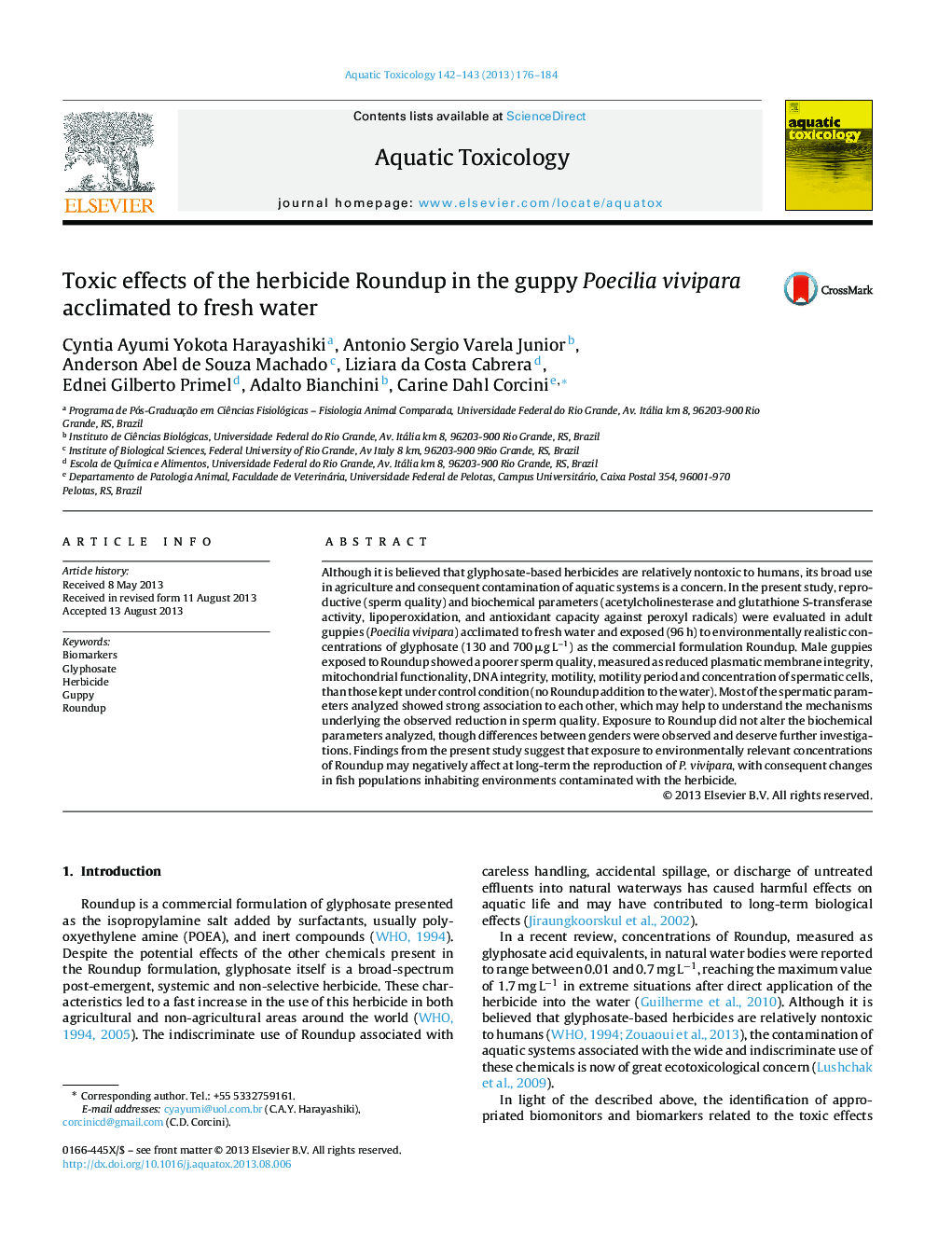| Article ID | Journal | Published Year | Pages | File Type |
|---|---|---|---|---|
| 4529434 | Aquatic Toxicology | 2013 | 9 Pages |
•Roundup reduces sperm quality including mitochondrial functionality and DNA integrity.•Concentrations of Roundup may negatively affect at long-term the reproduction of Poecilia vivipara.•Changes in fish populations inhabiting environments contaminated with Roundup.•Concentrations of Roundup tested did not affect the biochemical parameters analyzed.
Although it is believed that glyphosate-based herbicides are relatively nontoxic to humans, its broad use in agriculture and consequent contamination of aquatic systems is a concern. In the present study, reproductive (sperm quality) and biochemical parameters (acetylcholinesterase and glutathione S-transferase activity, lipoperoxidation, and antioxidant capacity against peroxyl radicals) were evaluated in adult guppies (Poecilia vivipara) acclimated to fresh water and exposed (96 h) to environmentally realistic concentrations of glyphosate (130 and 700 μg L−1) as the commercial formulation Roundup. Male guppies exposed to Roundup showed a poorer sperm quality, measured as reduced plasmatic membrane integrity, mitochondrial functionality, DNA integrity, motility, motility period and concentration of spermatic cells, than those kept under control condition (no Roundup addition to the water). Most of the spermatic parameters analyzed showed strong association to each other, which may help to understand the mechanisms underlying the observed reduction in sperm quality. Exposure to Roundup did not alter the biochemical parameters analyzed, though differences between genders were observed and deserve further investigations. Findings from the present study suggest that exposure to environmentally relevant concentrations of Roundup may negatively affect at long-term the reproduction of P. vivipara, with consequent changes in fish populations inhabiting environments contaminated with the herbicide.
